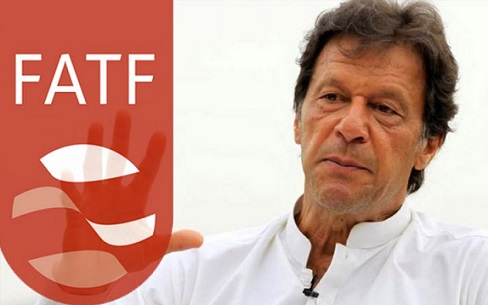The difference between mere lip service and honest intentions is perhaps not very difficult to gauge. Faced with an unpleasant situation, lip service is usually an insincere and a tactical ploy to buy time. In contrast, if honest intentions are there, all efforts are made to redress the problem at hand immediately.
Let us now see the action taken by our western neighbour Pakistan in two different cases of law making. One pertains to the September 9, 2020, incident of gang-rape of a woman on Lahore motorway and other regarding laws meant to check terrorists.
On Monday (September 14), within five days of the rape incident, a Senator moved a Bill in the Senate to make the rape-related laws more stringent. The new law proposes that any rape trial should be held straight in the high court and lower courts should have no jurisdiction. Besides, it also said that the verdict should be given within 30 days.
The proposed punishment for rape is death, or life imprisonment till death, with no parole. Prime Minister Imran Khan even argued that the rape convict should be hanged publicly and castrated chemically. He said making rape laws more stringent can act as a deterrent to would be rapists.
(Of course, he has not uttered a word against Masood Azhar, Hafiz Saeed, Syed Salahuddin, and countless others living in Pakistan. In fact, he made it clear where his sympathies lie when he referred to Osama bin Laden as a martyr.)
Contrast this with the laws that Pakistan has proposed against terrorism. These are supposedly meant to impede collection of funds by various terrorist organisations, sanctioning some designated individuals and so on. In all, four such laws have been drafted so far but none passed. In fact, these laws were not even moved on Monday in either National Assembly or the Senate.
Incidentally, two anti-terrorism laws were passed by the National Assembly some weeks ago but defeated in the Senate. The Pakistan PM had then accused the opposition of pushing the country towards possible blacklisting by Financial Action Task Force (FATF).
It may be interesting to recall that the FATF had put Pakistan in grey list in June 2018, two years ago. It had then identified 27 key result areas (KRAs) on which it was asked to work. So far, two years and three months later, no progress has been made in at least 13 KRAs assigned to Pakistan.
The contrast shown in passage of new laws on rape and anti-terrorism illustrate clearly how casually Pakistan takes terrorism emanating from its soil. We need to remember that most of the terrorist activities are directed against Afghanistan and India. As such, it is highly desirable for the Pakistani establishment which is directly complicit in them.
If truth be told, the special session of Parliament now underway in Pakistan is meant to convey to FATF that efforts are on to get various anti-terror laws passed. The session is directed at hoodwinking the world body to give Pakistan more time and not put it in blacklist.
It may not be too much worried about being blacklisted though. Three countries, China, Turkey and Malaysia, are likely to help Pakistan avoid blacklisting once again, as had happened in the past.
It is 26 months and 14 days (or 806 days) since the grey listing of Pakistan by FATF. Its officials need to juxtapose 806 (no laws on terror) against 5 (days taken to bring in new anti-rape laws) and see through the games being played with it. Of course, if the FATF takes action as it reviews greylist and puts Pakistan in blacklist, it can salvage some of its prestige. Otherwise, it only proves that many world bodies are mere paper tigers.
Sant Kumar Sharma, a seasoned journalist, is an authority on Jammu and Kashmir. Two of his books on Article 370 and Delimitation are already out. The third one on Indus Waters Treaty is with the publishers.
Sant began as a teacher but after six years, joined the Indian Express, Chandigarh in 1990, the year when terrorism was taking its first step in J & K and soon there would be exodus of lakhs of Kashmiri Pandits from the Valley. He subsequently worked for The Statesman, The Times of India and Star News among others. He is based in Jammu since May 2000.


